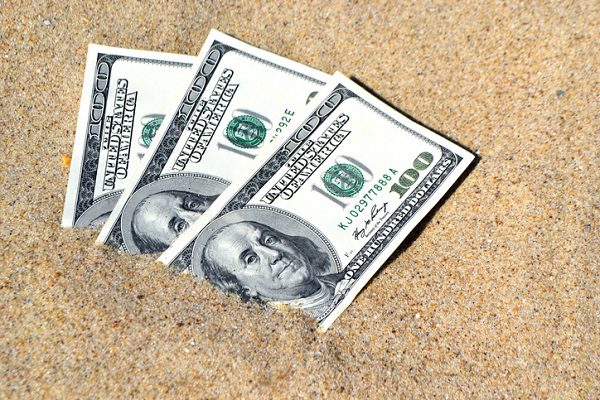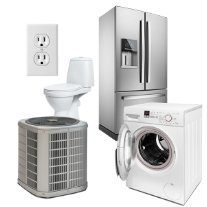Summertime can be tough on your electricity bill. With abnormal heat becoming more of the norm, you may want ways to increase your summer energy savings without having to be miserably hot. Today, we’ll share three summer energy savings tips to help you stay cool and protect your budget.
1. Use your air conditioner wisely
In some places, like Texas, using air conditioning is a matter of life or death. While we’d never suggest forgoing the use of your air conditioner, there are a few things you can do to make it more efficient and increase your summer energy savings.
First, check your thermostat. According to the US Department of Energy, 78°F is the optimal setting for comfort and energy savings while you’re at home. For even more savings, you can set your thermostat to 88°F while you’re out. That could save you up to 10% on your energy bill.
Second, make sure your vents are clean and clear. Clothes, clutter, and hot pets can clog airflow and make your air conditioner work harder than it needs to.
Third, keep exterior doors closed and interior doors open to allow for maximum airflow. Consider using standing fans to circulate cool air to hotter parts of your house that don’t get as much cool air.
Finally, if you have a ceiling fan, set it to turn counterclockwise. These steps can help you bump up your summer energy savings.
2. Don’t get bit by energy vampires
When you turn an electronic device off, you’d think it stops using energy. But that’s not the case. When devices stay plugged in despite you not using them, they can morph into energy vampires.
Energy vampires include computers, TVs, cable boxes, phone chargers, and other electronics that idle in standby mode when you aren’t using them. And the energy they waste isn’t chump change. The US Bureau of Labor Statistics estimates that up to 14% of home energy use is from electronics in standby mode. That comes out to almost $200 a year.
Fortunately, it’s not too hard to fend off energy vampires and increase your summer energy savings. To start, simply unplug electronics you don’t use that often. They can’t sap energy if they’re not plugged in.
Alternatively, you can purchase smart power strips that can restrict how much energy inactive electronics use. And they aren’t too expensive. You can find some for between $10 and $30.
3. Be mindful of energy peaks
Many energy companies charge more for using electricity during peak hours. This is especially true in summer, when many people use their air conditioners. Here are a few steps you can take in the interest of your summer energy savings.
First, know when your electric company’s peak hours are. You can usually find out by simply visiting their website. Peak demand varies by location and climate. But knowing your peak energy hours can help you plan around them.
Second, once you know how your electric company defines peak hours, try not to use major systems or appliances that require electricity. For example, you may delay doing the dishes or laundry until you’re in off-peak hours.
However, this may be challenging to people who work from home, or who need to take care of children or the elderly. So, if you simply can’t change when you use electronics and appliances, consider small steps to reduce energy use. For example, using LED bulbs instead of incandescent. You might also check to see whether your electric company provides rebates and discounts for being more energy efficient.
2-10 HBW always aims to help you save
Using these summer saving tips can protect your budget, along with important systems like your air conditioner and appliances like your fridge. And a home warranty from 2-10 Home Buyers Warranty (2-10 HBW) can round out your summertime savings while protecting the things that make your house hum.
2-10 HBW provides several home warranty plans for all kinds of homes and budgets. Whether you just need your kitchen appliances covered or want as much coverage as possible, 2-10 HBW can help.
2-10 HBW offers the most comprehensive home warranty coverage for homeowners. Let us help you protect your home.
Related content
7 Tips for Vacation-Proofing Your House








